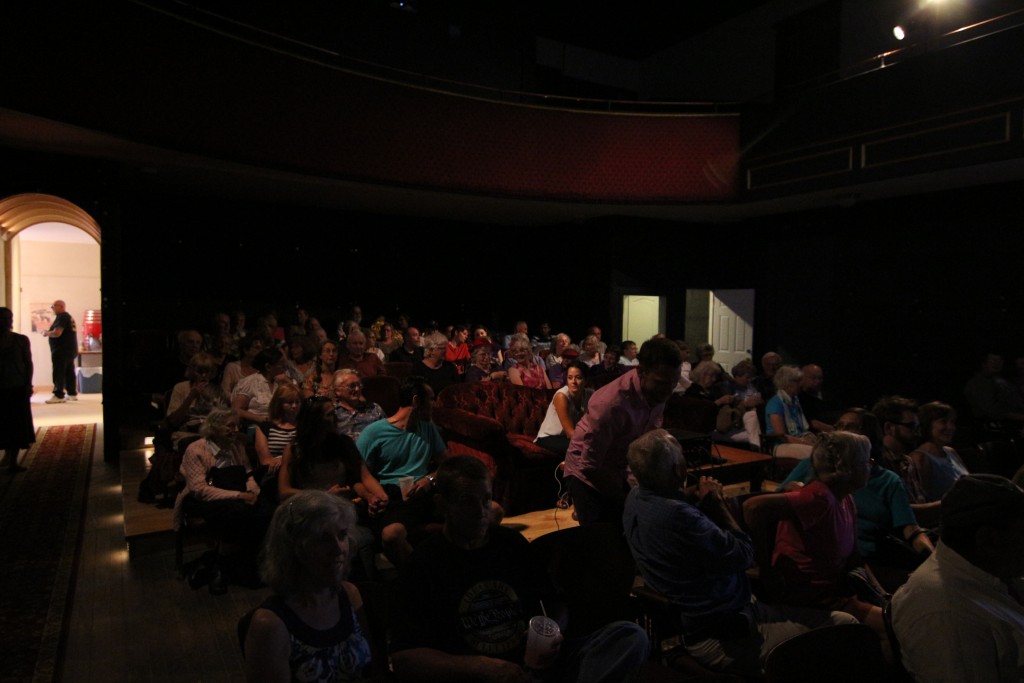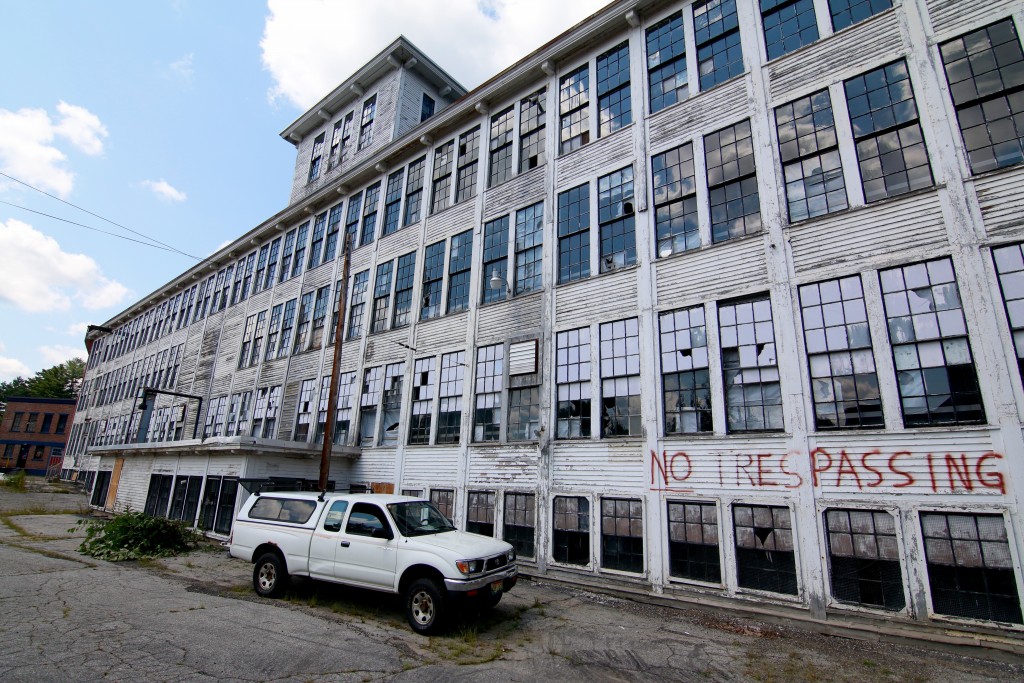by Marques Bostic
When I moved to Kezar Falls from Portland earlier this year, I was met with mixed reactions by my friends and family. While I’ve always romanticised the idea of escaping to a rural area, for others it’s more difficult to understand the draw. Some have questioned my well-being and asserted that I must be lonely, despite my insistence to the contrary. Nothing could be further from the truth: the broad range of reactions that I’ve received and my experiences here thus far have certainly changed my perspective on community and sense of place. Portland is a community that embraces willingness and enthusiasm over resumes and connections, which allows it to support people from a wide range of backgrounds. Kezar Falls is no different, and as such I’ve found myself falling in love with this place for the same reasons.
Over a weekend in mid-August, I spent much of my time with a broom or a mop in my hand. First, helping a friend prepare for a film screening at an old theatre that he’s in the process of renovating. Then, beginning preparations at an old mill building for events later this fall.
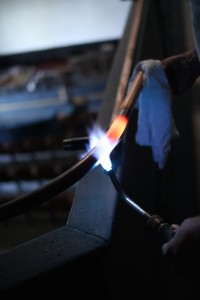
The renovation of the Kezar Falls Theatre is a project of a filmmaker who was born and raised locally. He purchased the building, which, in addition to a theatre, has seen use as a roller rink, basketball court and furniture store. He’s spent the past three years restoring the theatre and adding a personal office and studio. The weekend’s screenings were the first since the 1970s, and the reception from the community was overwhelmingly positive. The house was packed, and in attendance were some of the same people who, decades ago, ran the projectors, sold popcorn, had make-out sessions on the balcony.
The Kezar Falls Woolen Mill was the primary employer in the region for much of the previous century, and remained in operation until about 15 years ago. The complex consists of several buildings, the condition of which deteriorated quickly once they were abandoned. The mill is in the center of the village, overlooking the Ossipee River. Its location could support a number of uses, but also presents several challenges, most notably a lack of existing electricity, water or septic. Thus far the town has been unsuccessful in attracting anybody interested in developing the site.
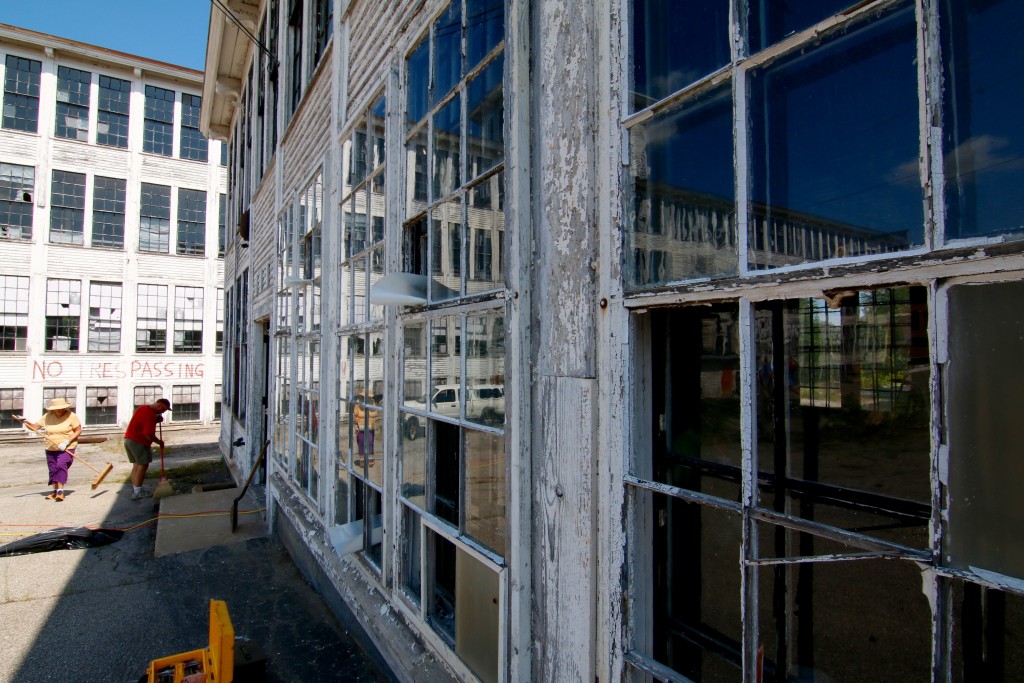
This spring, a committee was formed consisting of town officials, city planners, contractors, tradesmen, artists, and others interested in promoting better use of the space. While the ultimate objective remains to develop the site, the town recognises that neglecting the space is wasting a valuable resource that could be put to use in the interim. The goal of the preparations that began in mid-August is to make the buildings safe to use for public events: repairing broken windows, reinforcing sagging floorboards, clearing brush and garbage from the grounds, cleaning up from pigeon and mouse infestations, and securing the building to make sure the critters don’t return. Once we get approval from the town code enforcement, we plan to host a fall event with art installations, music and food.
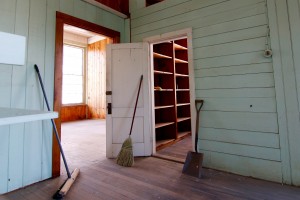
The weekend certainly involved a lot of cleaning, but during the breaks between sweeping the theatre and sweeping the mill I also ran in a road race sponsored by the local health center where I work, went kayaking, took a short trip through the mountains and spent some time at the hospital with a friend who fell and broke her shoulder. While it was certainly hectic and exhausting, the weekend was made manageable through a true community effort. The people who I cleaned the mill with are also the people who paced me in the road race. The people who volunteered to hand out water are also the people who x-rayed my friend’s shoulder. The person who watched my dog when I brought my friend to the hospital also did the drywall work at the theatre. The people who organized the screenings are the same people I kayak with. The people on the mill committee include several of my patients and neighbors.
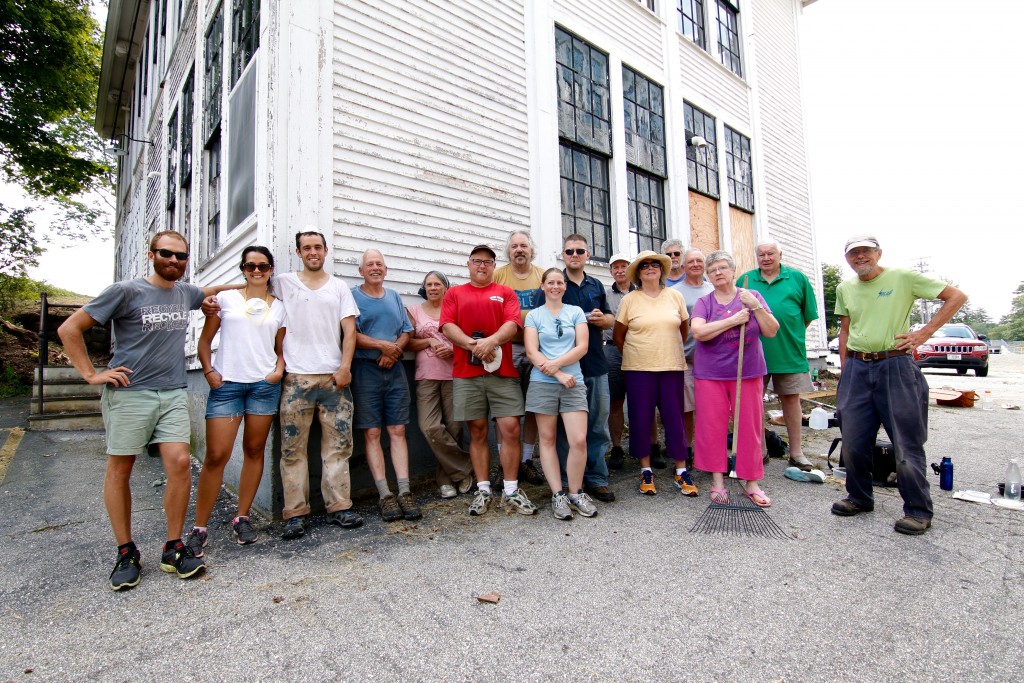
When many people think about rural villages, they envision the lifestyle being isolating as compared to a city. My experience in Kezar Falls has proven quite the opposite. I always felt a strong sense of support in the Portland creative community, but in Kezar Falls the community doesn’t just support, it leads. There’s much more overlap and connection between people with various interests but the same goals. With fewer outlets for creative endeavors, projects here can make a proportionally more significant impact, and also seem more inclusive in who they attract. I don’t have a major interest in film, and in Portland there are likely film screenings all the time that don’t even cross my radar. When one takes place in Kezar Falls however, it becomes something much bigger.
Should you ever find yourself in the area, ask around and you’ll likely find something worth exploring.
